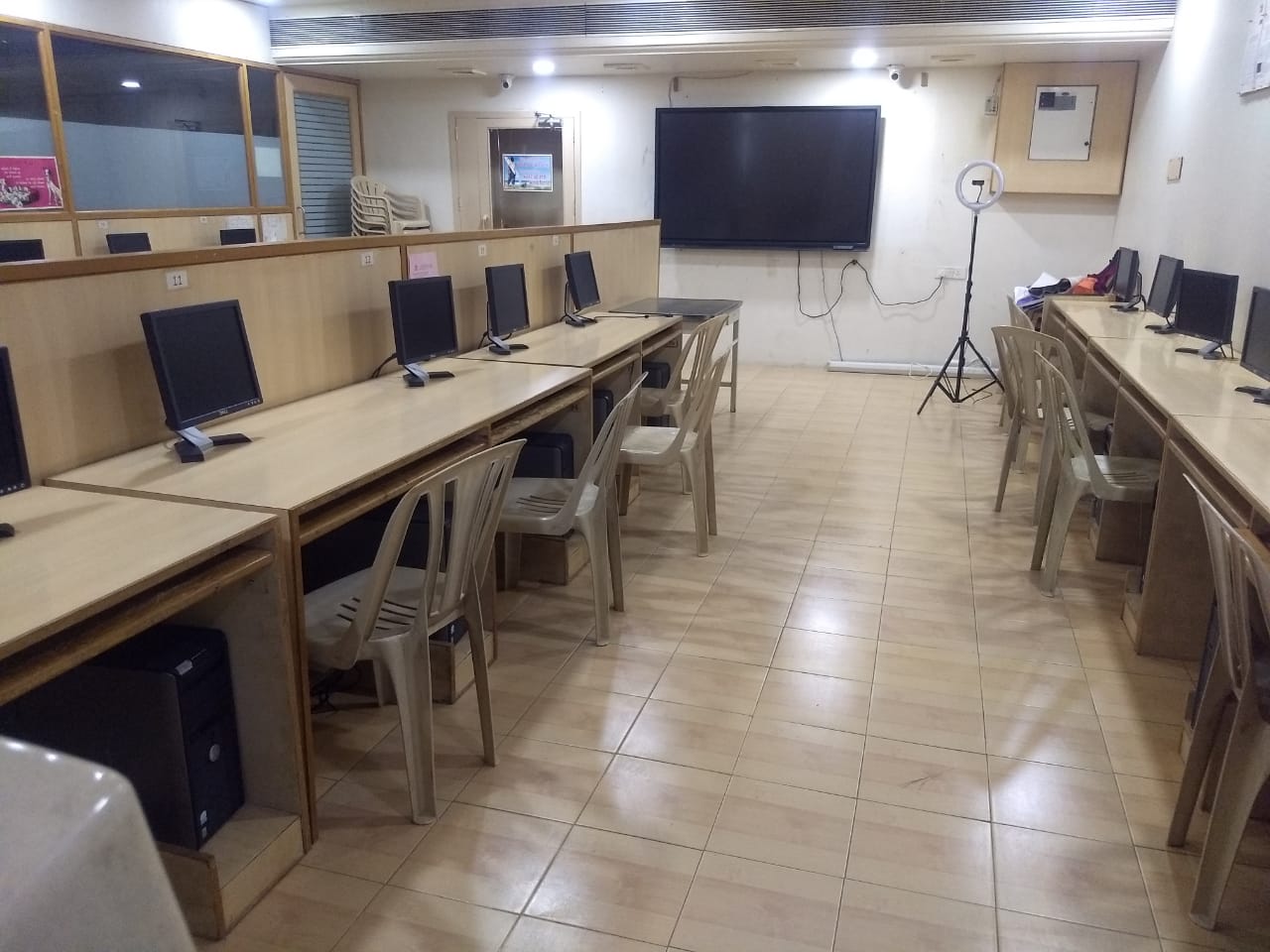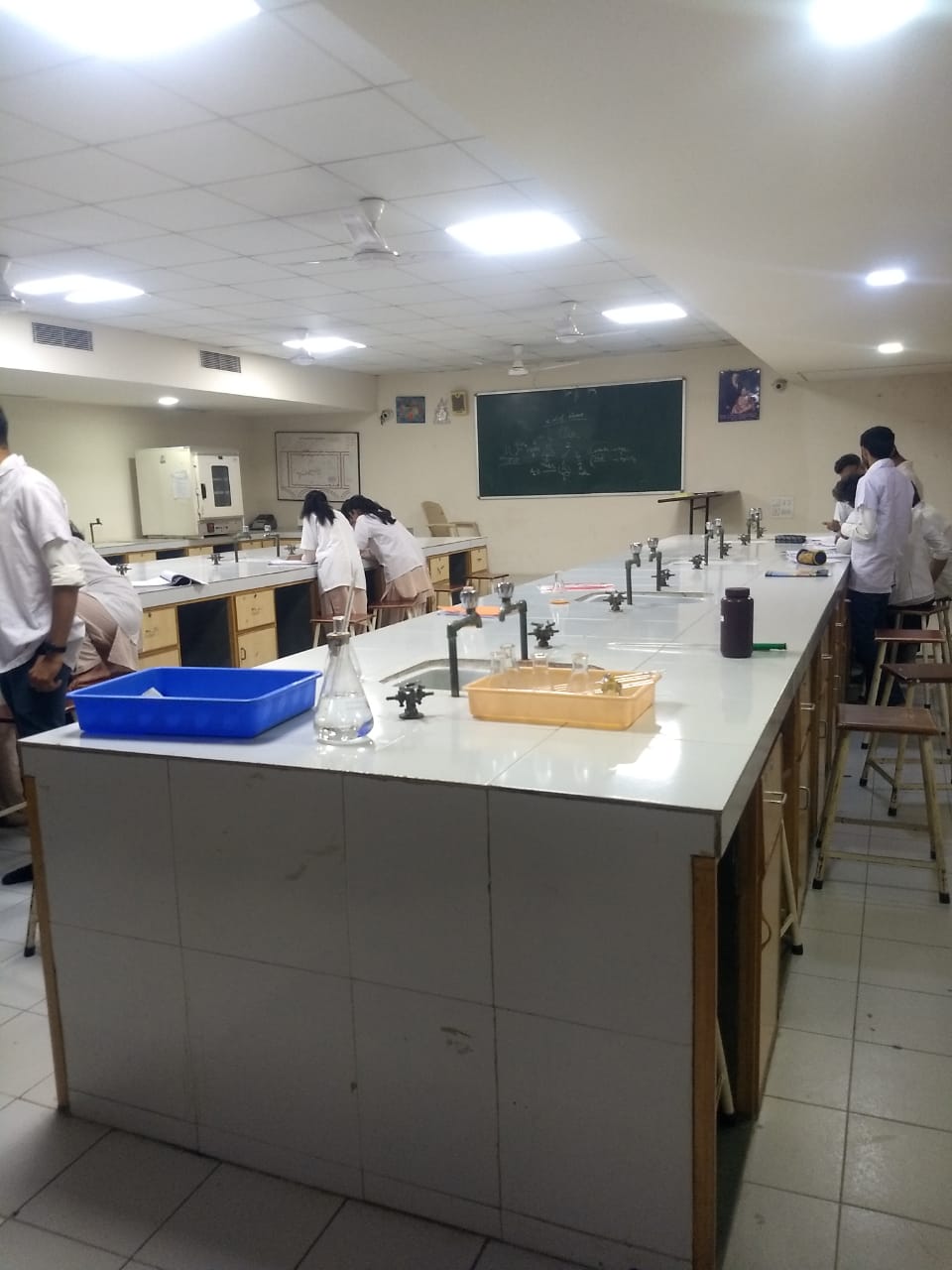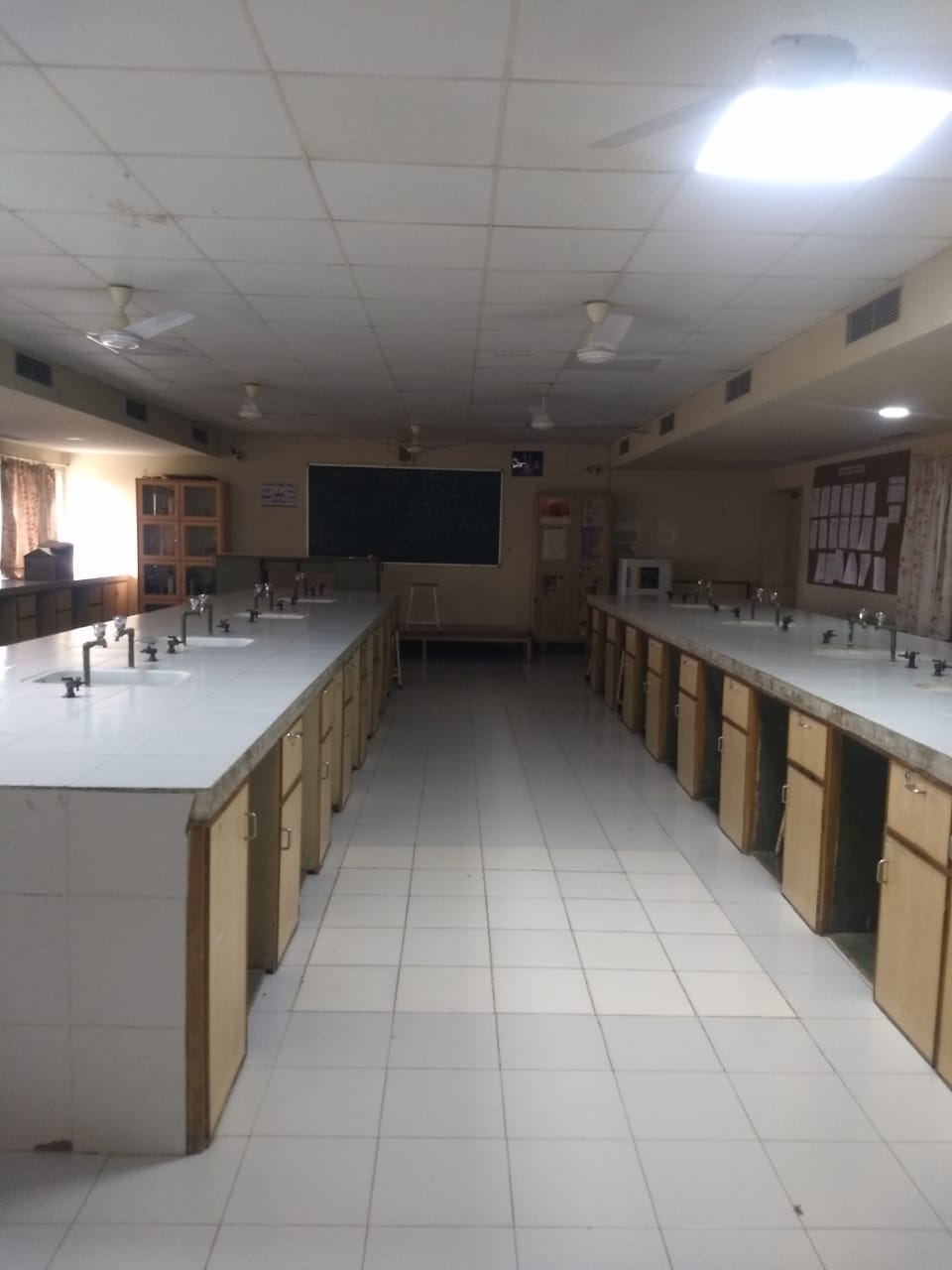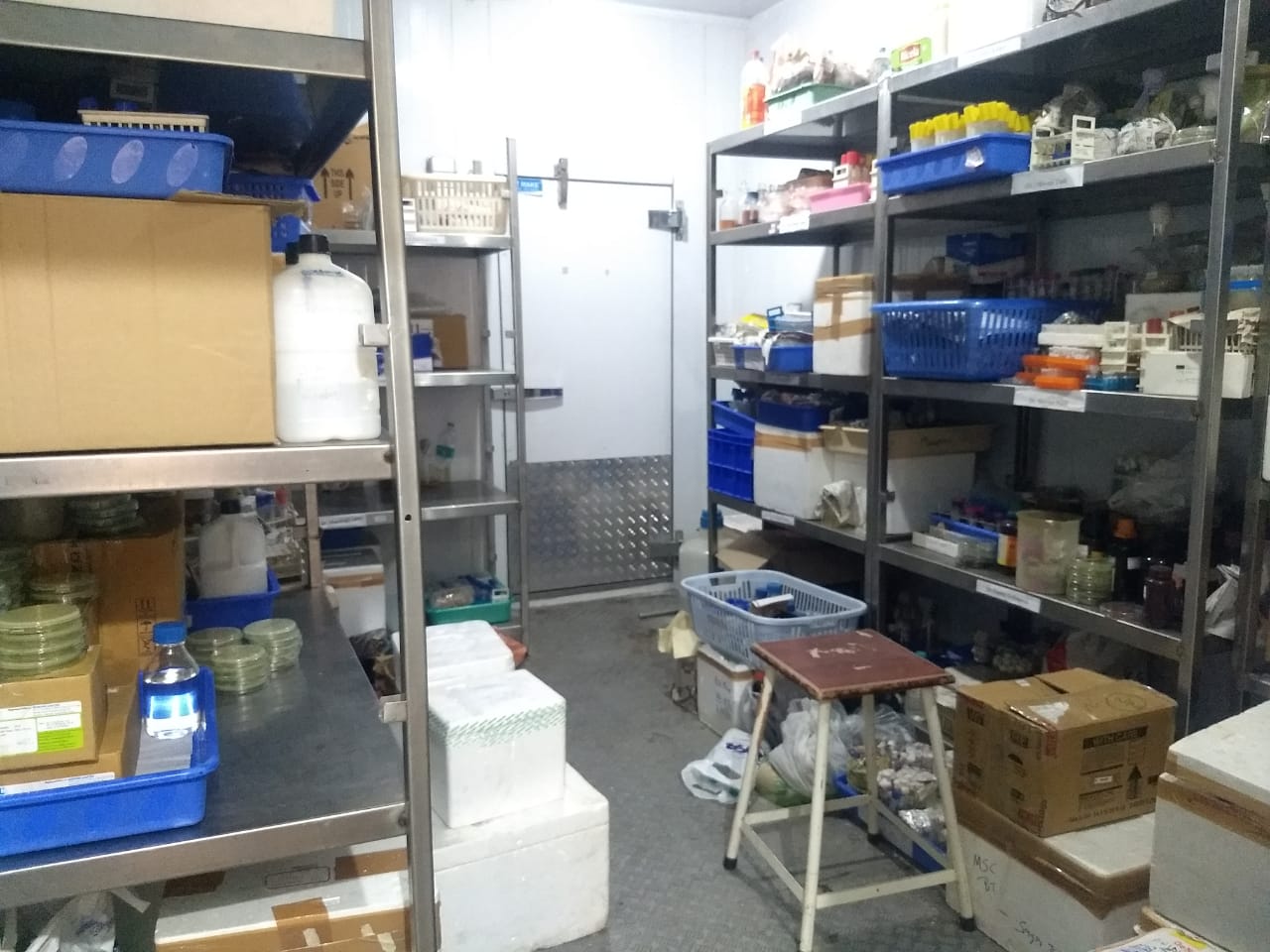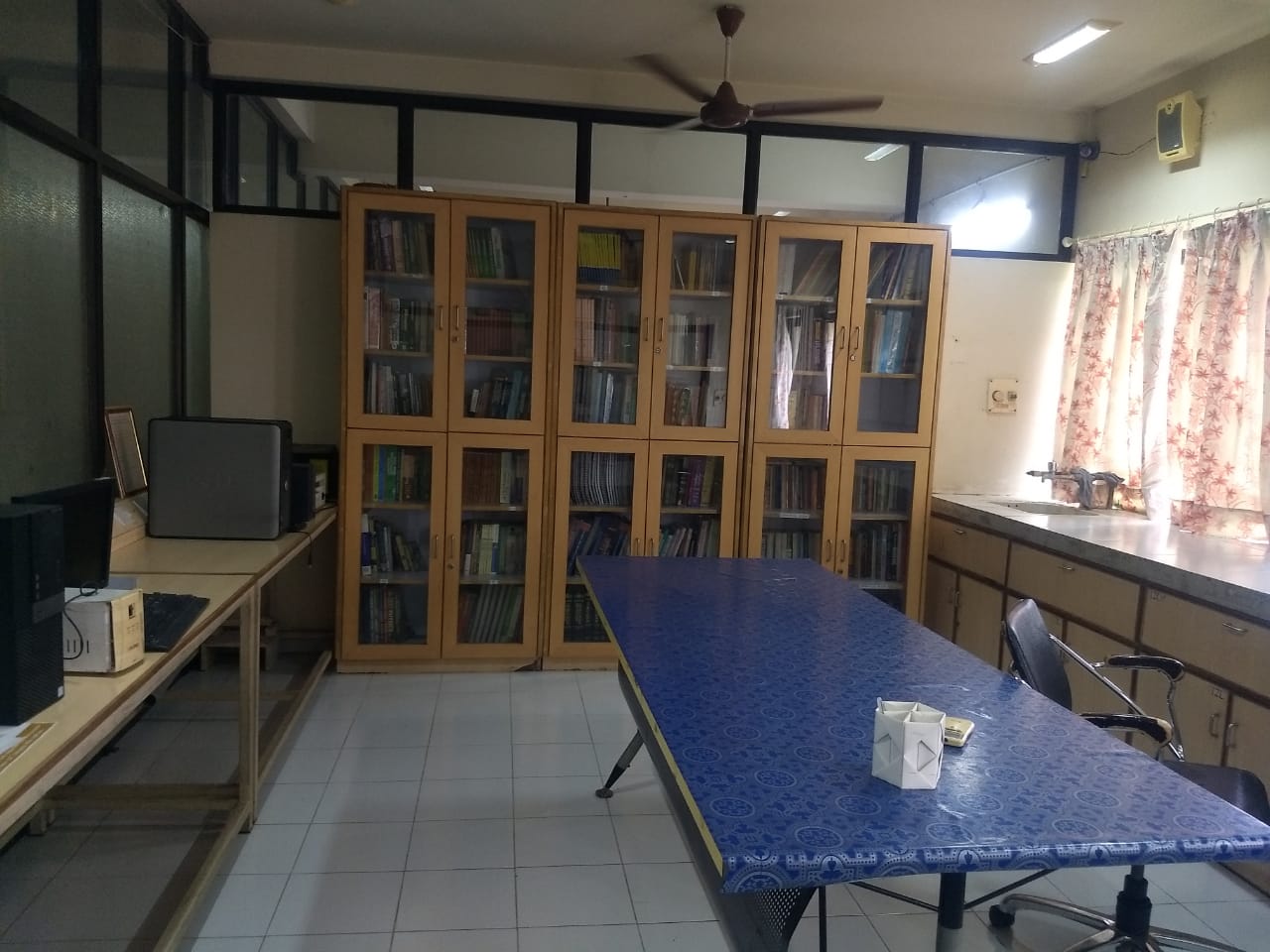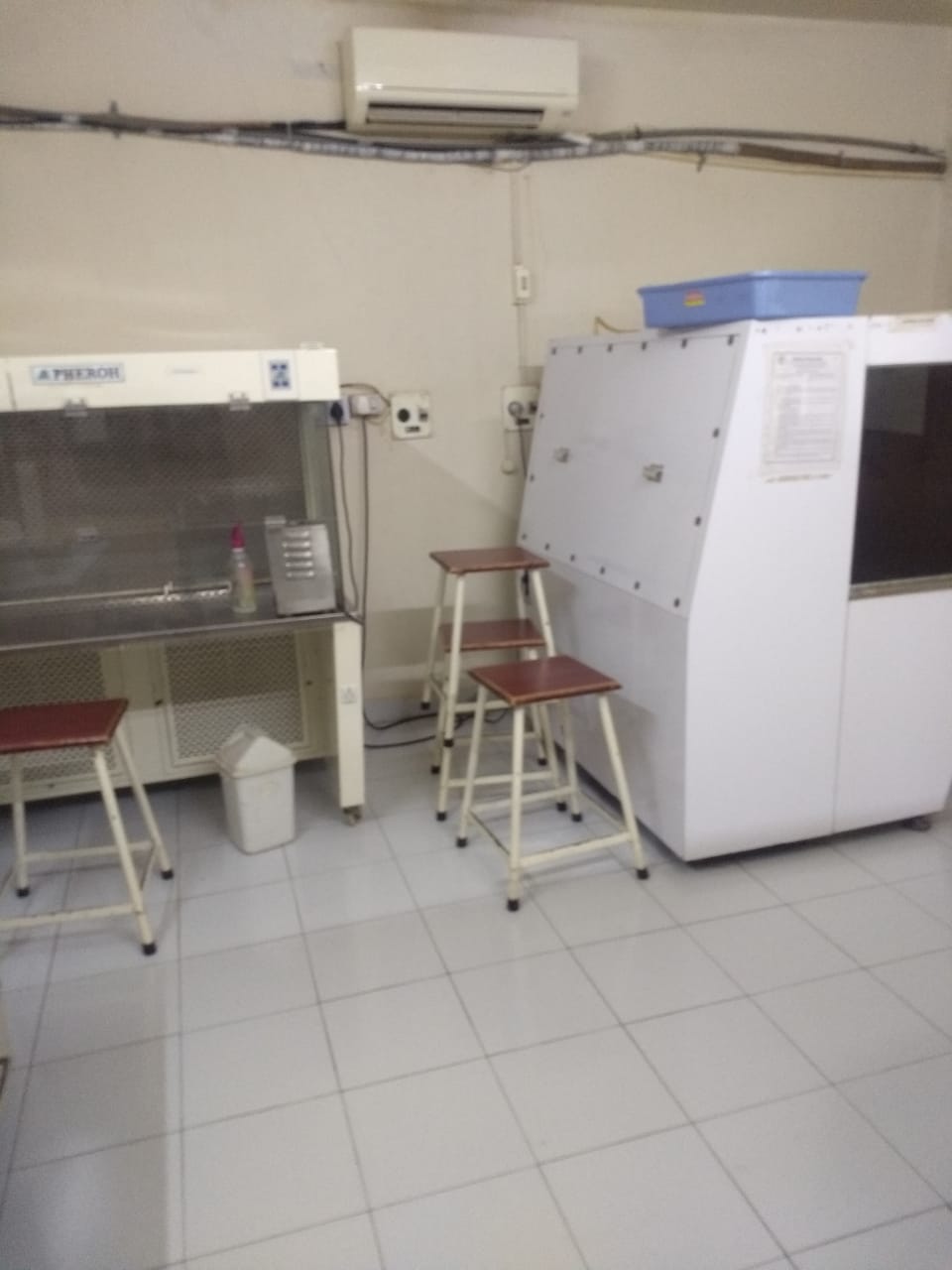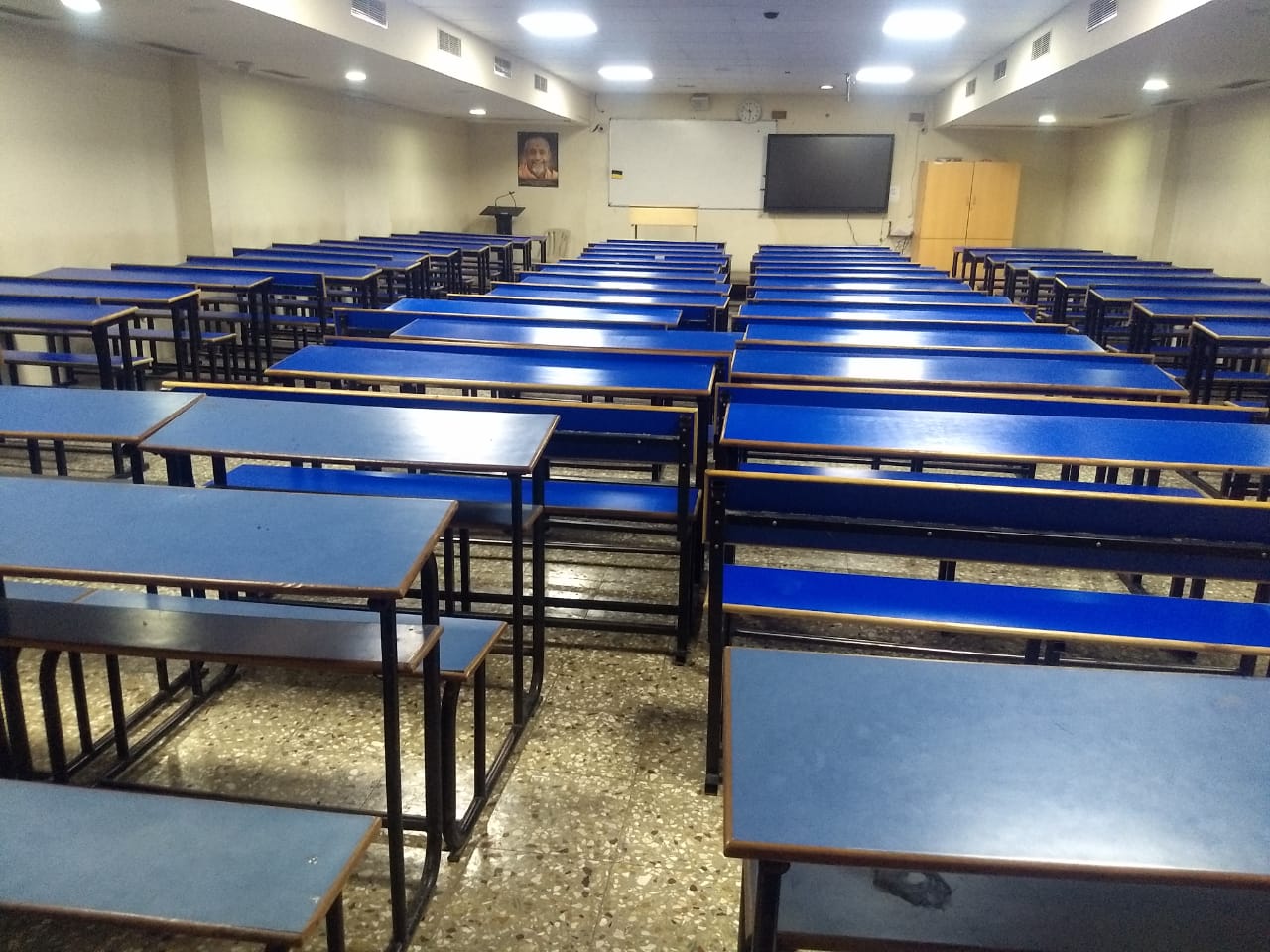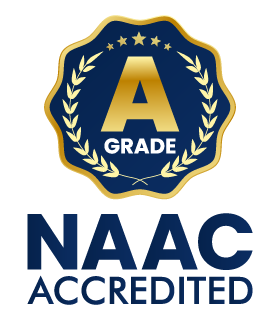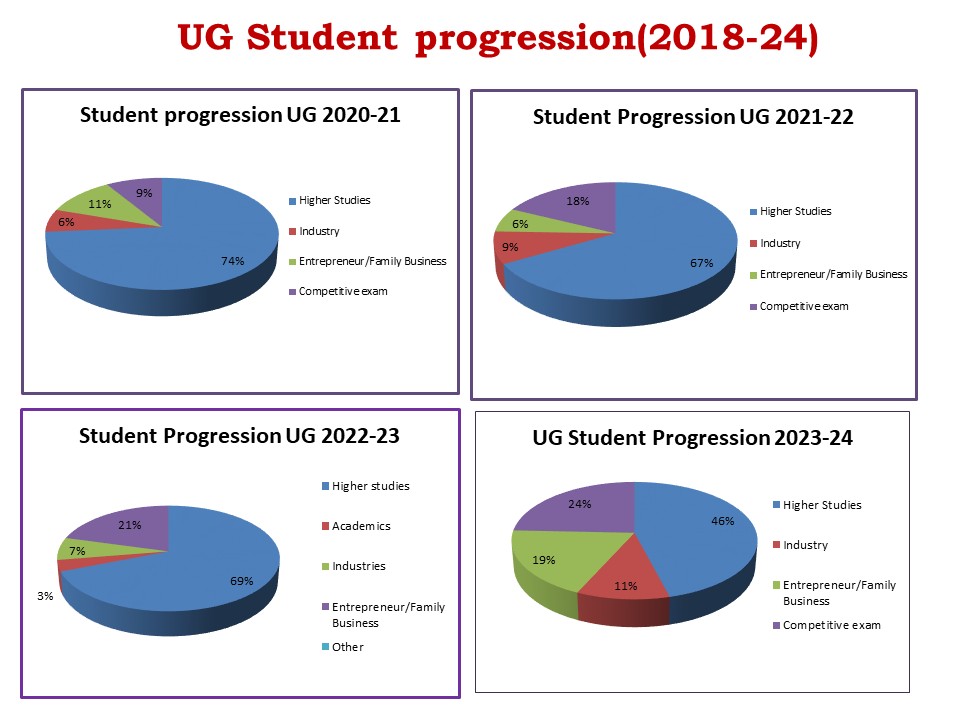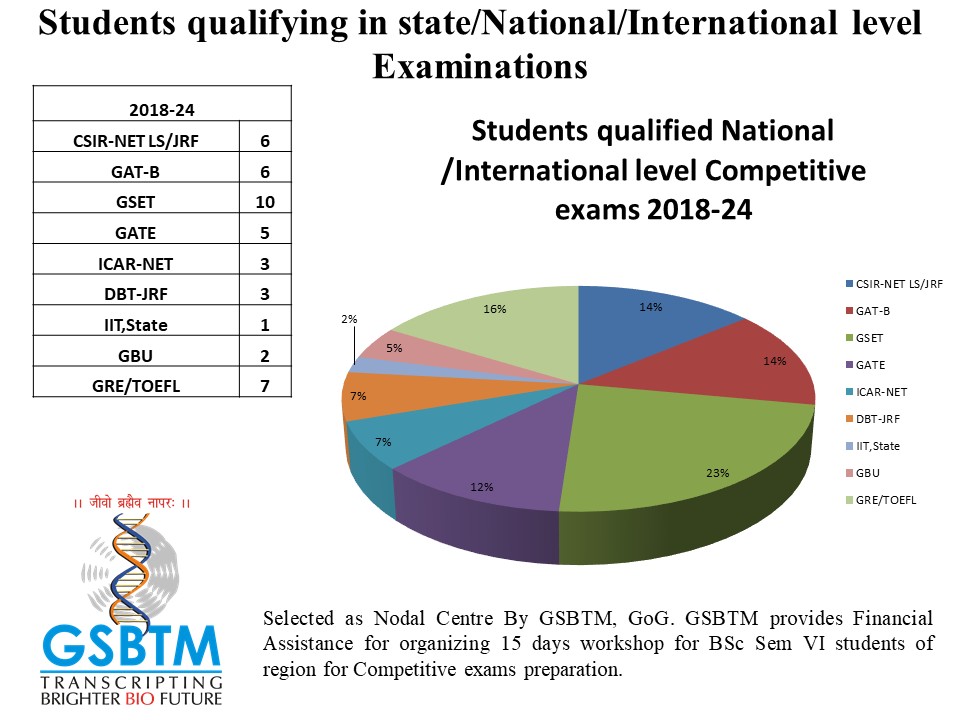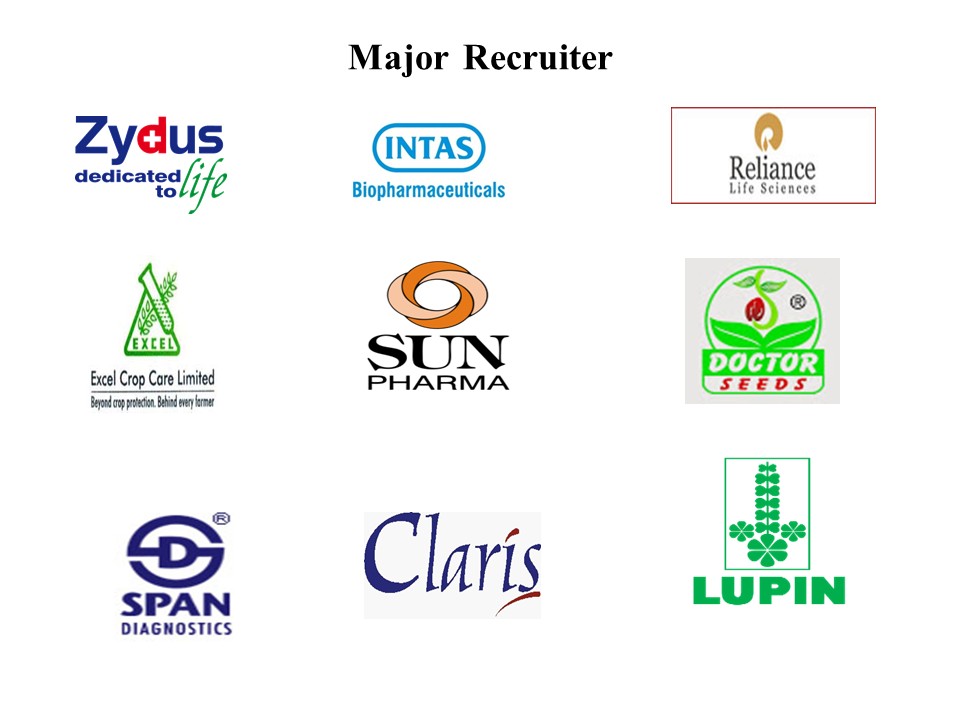About Department
Vision & Mission
Objectives
The Curriculum is designed to attain the following learning goals which students shall accomplish by the time of their graduation
- This programme will enable students to acquire knowledge on the Fundamentals of Biochemistry, Cell Biology, Microbiology, Immunology, Bioprocess Technology and Molecular Biology to enable them to understand emerging and advanced concept in modern biology and help them to take their career in this field.
- After completion of the programme, the students will be able to acquire the necessary theoretical and practical competencies in Biotechnology to enable them to undertake higher studies in recognized Institutions of advance learning and engage gainful self-employment
- The Programme is intended to help the students to be the innovative and versatile personalities in the field of Life Science with quality education and provide the skilled manpower required by Research and Development, Institutions of Higher Learning and Industry
Graduate Attributes
- Academic excellence: Ability to identify key questions, research and pursue rigorous evidence-based arguments
-
Critical Thinking and Effective communications: Analysis and evaluation of information to form a judgement about a subject or idea and ability to effectively communicate the same in a structured form.
-
Global Citizenship: Mutual understanding with others from diverse cultures, perspectives and backgrounds
- Life Long Learning: Open, curious, willing to investigate, and consider new knowledge and ways of thinking
Program Educational Outcomes
- PEO-1:Core competency: To develop the competency in the graduates to pursue higher education or successful career with synergistic combination of the knowledge and skills of biotechnology and allied sciences .
- PEO-2: Breadth of knowledge: To inculcate in graduates the capabilities of independently designing, executing and interpreting small research problems and handling basic laboratory instruments
- PEO-3: Preparedness: To impart communication skills for effectively comprehend and communicate domain knowledge to layman as well as qualified person. /li>
- PEO-4: Professionalism: To instill values and responsibilities in the character to make the graduates fit to work in a multidisciplinary team and to become socio-ethically responsible citizen.
- PEO-5: Learning environment: To develop self-learning abilities by inculcating attitude to keep themselves abreast with new development in all spheres of life.
Program Outcomes
-
After completion of the programme the Graduate will be able to:
PO 1
:
Domain knowledge: Demonstrate the knowledge of concepts, principles and applications of Biotechnology in various fields
PO 2
:
Problem analysis: Acquire critical thinking skills to understand and solve contemporary problems with biotechnology domain knowledge and skills
PO 3
:
Design/development of solutions: Understand the complex biotechnological problems and design structured mechanisms or processes that meet the specified needs
PO 4
:
Conduct investigations of complex problems: Gain ability to design, conduct experiments, analyse and interpret data for investigating problems in Biotechnology and allied sectors
PO 5
:
Modern tool usage: Understand standard operating procedures and acquire in-depth technical competence to handle the basic laboratory instruments
PO 6
:
The Biotechnology Professional and society: Understand own’s role in society and act in an honest and consistent manner based on a strong sense of self and personal values
PO 7
:
Environment and sustainability: Understand complex environmental issues and their interrelationships and requirement of interdisciplinary domains for sustainable development
PO 8
:
Ethics: Apply ethical principles and commit to professional ethics and responsibilities and norms of the Biotechnological practice.
PO 9
:
Individual and team work: Able to function effectively as individual and as a member in multidisciplinary settings
PO 10
:
Communication: Communicate effectively using different modes (viz. written, verbal and digital) not only with scientific community but also with the society at large
PO 11
:
Project management and finance: Understand the principles of management of finance and apply these to one’s own work, as a member and leader in a team, to manage projects and in multidisciplinary environments.
PO 12
:
Life-long learning: Able to recognize the need to undertake life-long learning and acquire the capacity to do so
Program Specific Outcomes
-
After completion of the programme the Graduate will:
PSO 1
:
Acquire knowledge on the fundamentals of biotechnology for sound and solid base which enables them to understand the emerging and advanced engineering concepts in life sciences.
PSO 2
:
To equip the students to pursue higher education and research in reputed institutes at national and international level.
PSO 3
:
Be able to understand knowledge of Biotechnology to find innovative solutions for environment, agriculture, health related issues
PSO 4
:
Deduce the possibilities and impression of biotechnological revolutions for finding sustainable ethical solutions to existing problem
PSO 5
:
Be able to explore problems related to life science and provide effective solution through industry-academia interactions
Faculty profile

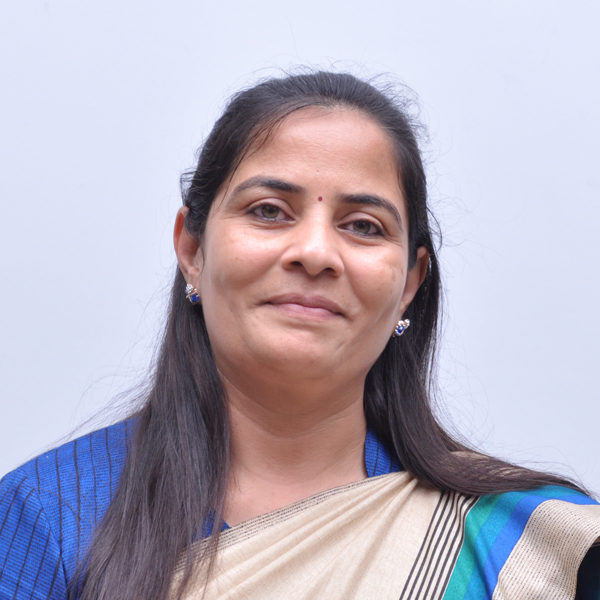
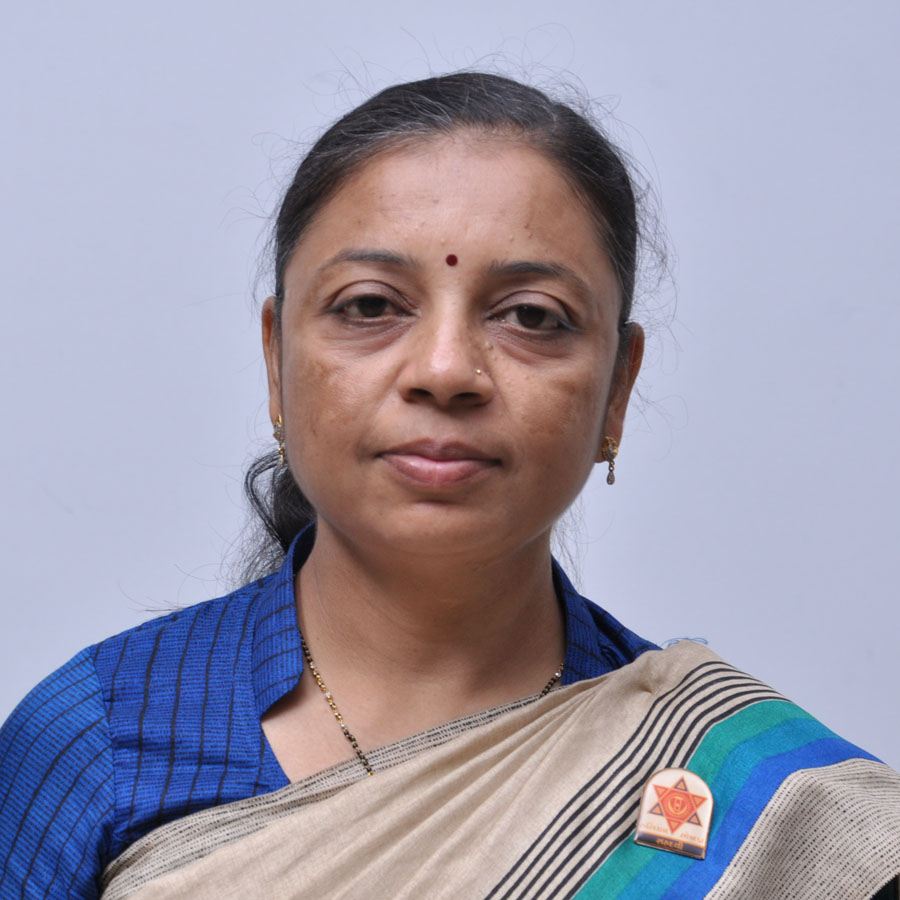


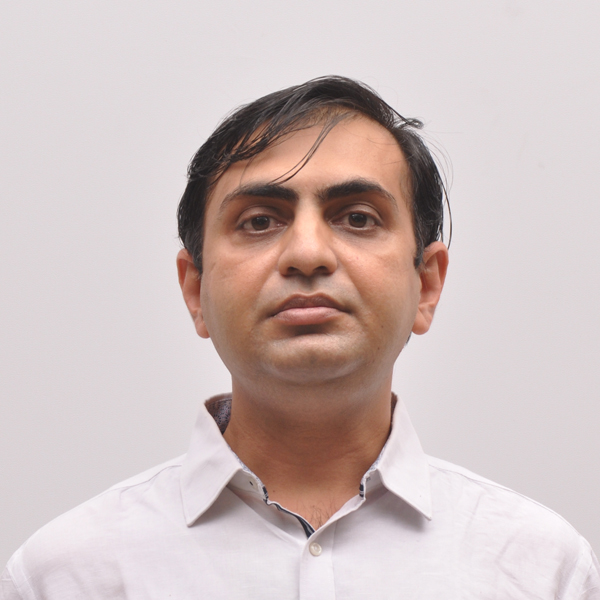

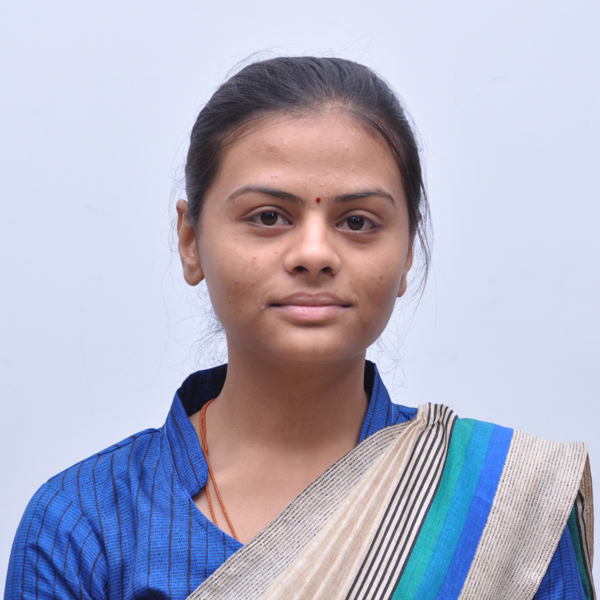
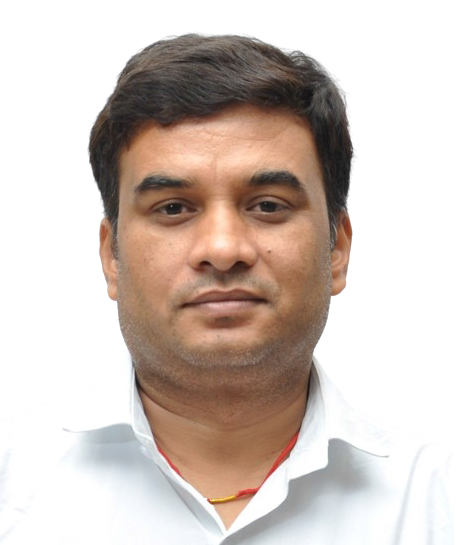

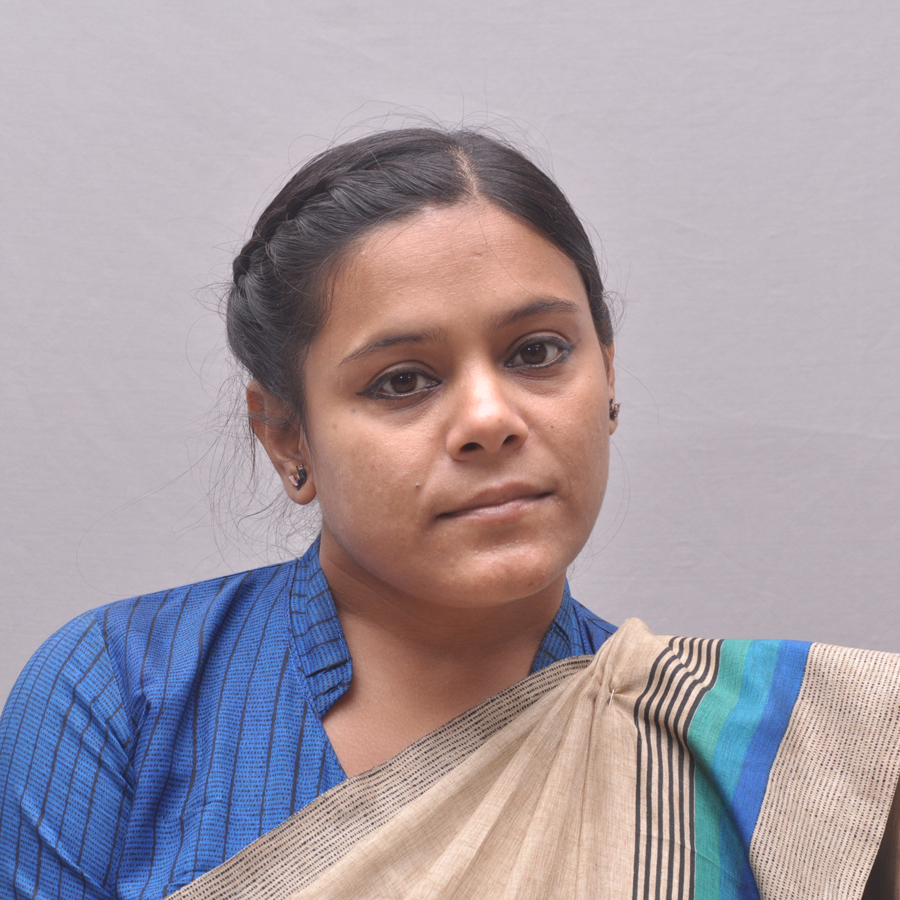





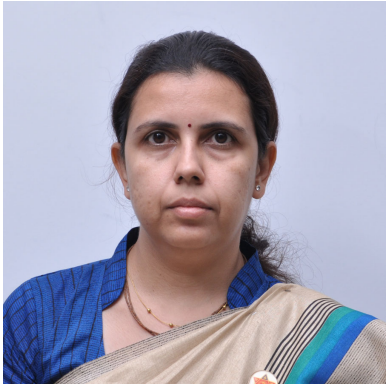

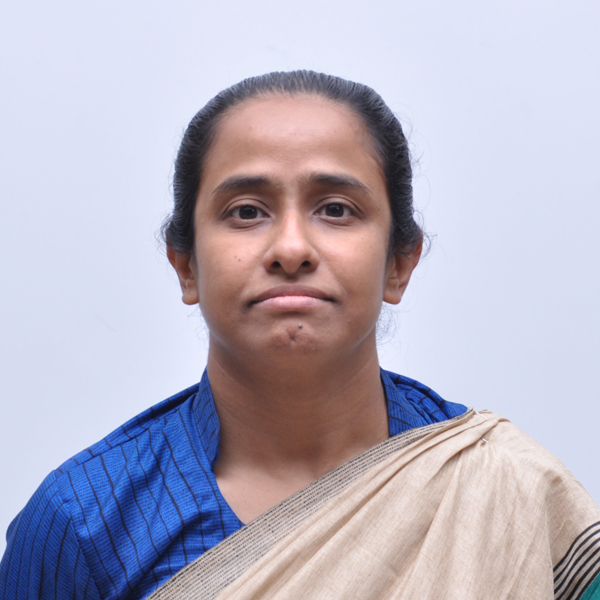

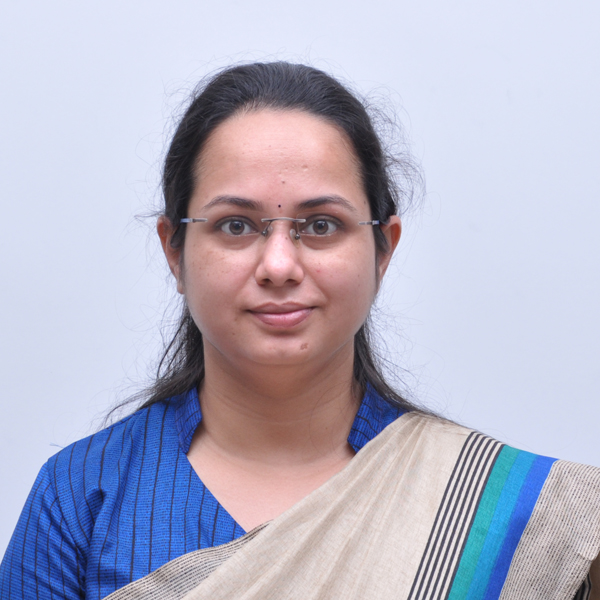

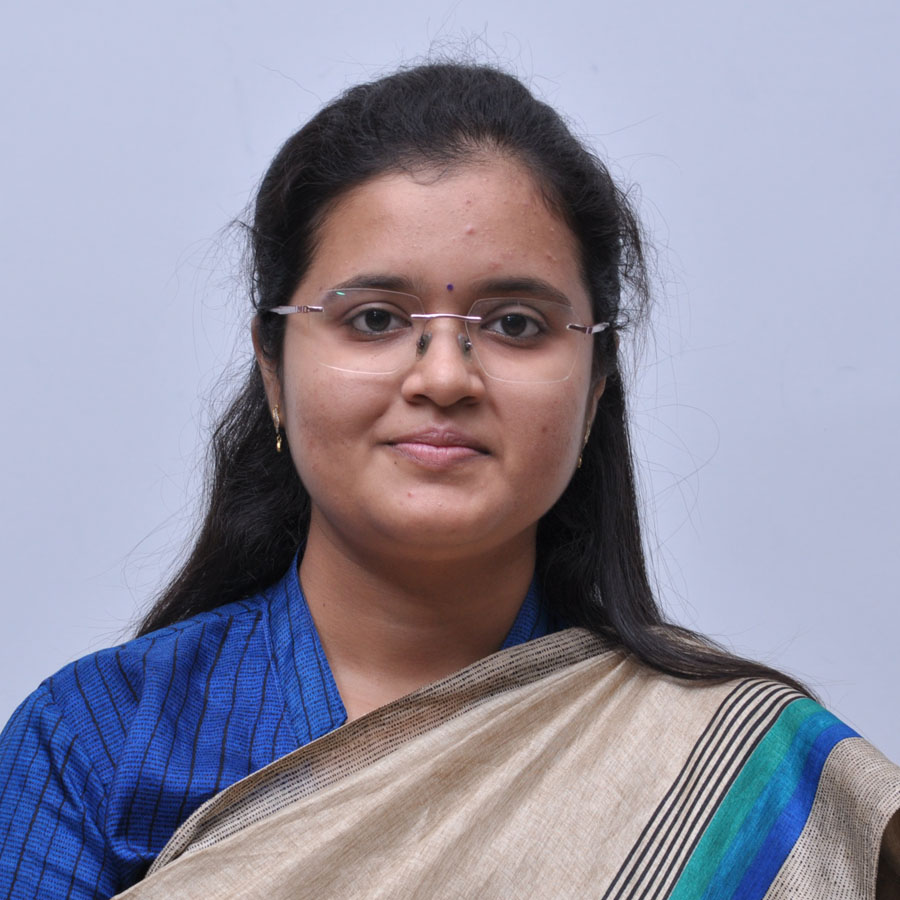
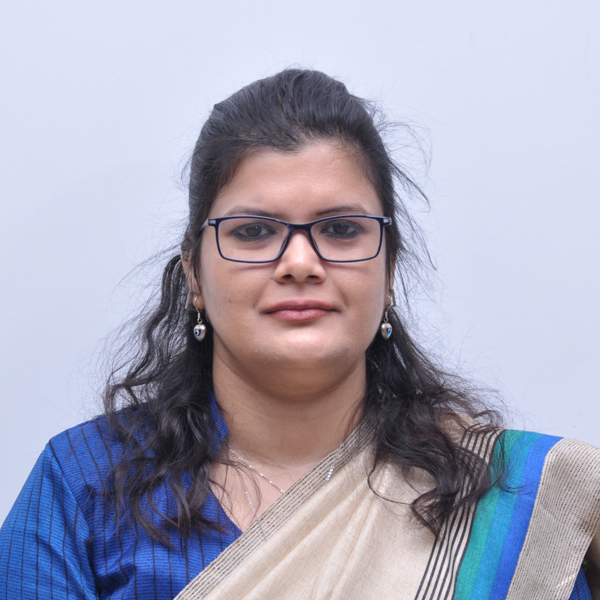
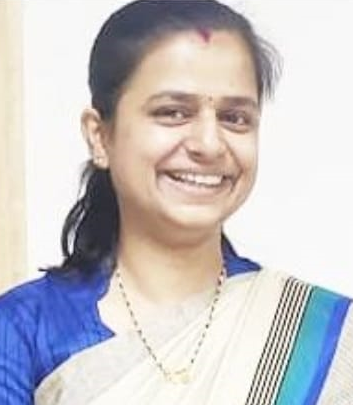
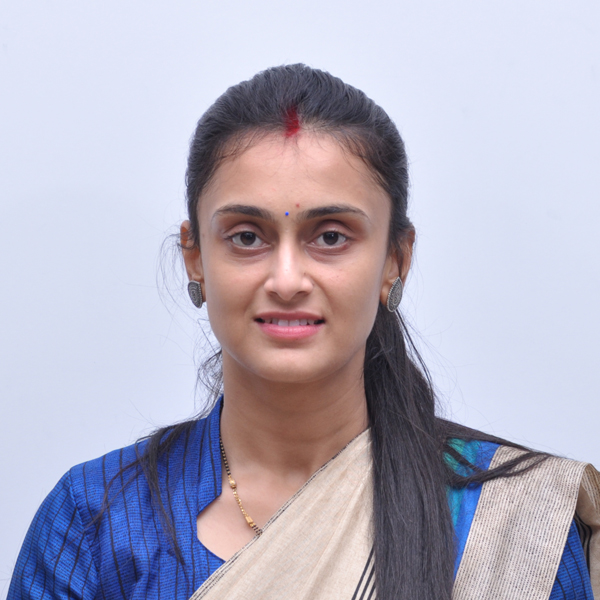




Scope
Biotechnology is an interdisciplinary field which helps society to deal with challenges that come from global climate change, food crisis and food security, pests and diseases control, prevention and cure of diseases and much more. Graduate degree in Biotechnology is providing ample opportunities for those who want to explore the new and modern frontiers of science. The applications of Biotechnology are enormous as it caters to various industrial sectors like food, textiles, pharmaceutical, agriculture, animal husbandry and many more.
Having a strong foothold globally, biotechnology as a career option is immense as we live in exciting era where there are amazing discoveries, new applications and innovative products on the market every day. After completing their graduation, Biotechnology graduates can qualify various national level entrance examinations conducted by universities and institutes like JNU/NITs/IITs/TIFR etc. to pursue a postgraduate degree in Biotechnology from any institute of national and international repute in India as well as abroad.
Biotechnologists play a vital role in the continuous search to find new, sustainable solutions to the global challenges. They can work in various work environments like industrial sector, environmental sector, medical sector, food manufacturing, health-care and pharmaceuticals and academics. Professionals in this field can develop their expertise in one or more subfields like genomics, proteomics, and bioinformatics.
Entry-level biotechnologist or candidates with a bachelor’s degree in biotechnology can work as Research/Lab technicians. They help out teachers and scientific professionals to conduct and monitor experiments and may also record data and prepare reports.
Postgraduates in Biotechnology can qualify the examinations like NET(National Eligibility Tests)/SET(State Eligibility Tests)/GATE(Graduate Aptitude Test in Engineering)conducted by various agencies like CSIR, UGC, ICMR, ICAR, IITetc. to pursue a successful research and teaching career at any University, College, School or institute.
Research and Publication
The thrust areas include Molecular Markers, Bioprospecting of Natural Plant Extracts, Drug Discovery, Microbial Technology,Natural Product Research, Plant-Microbe Interactions, Extremozymes, Cancer Biology, Plant Tissue Culture, Nanotechnology, Marine Biotechnology, Cancer Biology, Animal Cell Culture, Bioremediation, Stress Biology and Bioprocess Engineering. The faculties are actively involved in the research projects funded by the state as well as national organizations.Besides research projects, the faculties and students of the department have published more than 100 research/review papers in various national and international scientific journals.
| Research Projects | |
|---|---|
| Minor Research Project | 10 projects completed |
| Major Research Project | 02 Projects completed |
| Faculty Publications | |||
|---|---|---|---|
| Publications | International | National | Total |
| Research Papers | 103 | 08 | 111 |
| Conference Proceedings | 09 | 09 | 18 |
| NCBI Sequence Submissions | 34 | 0 | 34 |
| Student Publications | |||
|---|---|---|---|
| Publications | International | National | Total |
| Research Papers | 9 | 3 | 12 |
| Conference Proceedings | 0 | 2 | 2 |
| NCBI Sequence Submissions | 9 | 0 | 9 |
| SR. NO. | FACULTY NAME | PUBLICATION | TITLE |
|---|---|---|---|
| 1 | Dr. Shivani Patel | Research Article | In vitro antimitotic and cytotoxic potential of plant extracts: a comparative study of Mucuna pruriens, Asteracantha longifolia and Sphaeranthus indicus.Futur J Pharm Sci ISSNA23147245, Vol 6: 115 2020ISSN: 23147245Vol :6:115(2020)\ |
| 2 | Dr. Shivani Patel | Research Article | Some natural extracts from plants as low-cost alternatives for synthetic PGRs in rose micropropagation. Journal of Applied Horticulture0972-1045 20(2); 103-111 2018 |
| 3 | Dr. Shivani Patel | Research Article | An improved method of DNA purification from secondary metabolites rich medicinal plants using certain chaotropic agents Acta Physiologiae Plantarum (Springer) Print: 0137-5881; Online: 1861-1664; 38; 207 2016 |
| 4 | Dr. Shivani Patel | Research Article | Genetic Diversity of Marine and Fresh Water Cyanobacteria from the Gujarat State of India. Advances in Bioscience and Biotechnology Print: 0967-0874; Online: 1366-5863; Vol5; 1061-1066 2014 |
| 5 | Dr. Shivani Patel | Research Article | Candidate gene mapping: approach, methods and significance. American Journal of Research Communication2325-4076; 1(8); 199-204;2013 |
| 6 | Dr. Shivani Patel | Research Article | Homology Modeling of Acetate Kinase in Methanosarcinaacetivorans c2A Advanced Biotech12(03); 19-22; 2012 |
| 7 | Dr. Shivani Patel | Research Article | Extraction and Analysis of Jatropha curcas L. Seed oil African Journal of Biotechnology1684-5315; 10(79);18210-18213;2011 |
| 8 | Dr. Shivani Patel | Research Article | Molecular Docking Studies of Antimalarial Drugs for Malaria Journal of Computer Science & Systems Biology onlinedoi:10.4172/jcsb.1000059; 3; 070-073;2010 |
| 9 | Dr. Ravi Ranjan | Research Article | Characterization and partial purification of an antibacterial agent from halophilic actinomycetes Kocuria sp. strain rsk4 BioImpacts2228-5652 SJR = 0.63 |
| 10 | Dr. Ravi Ranjan | Research Article | COVID-19: A Bitter Truth International Journal of Research in Humanities & Social Sciences2347-5404 |
| 11 | Dr. Ravi Ranjan | Research Article | Screening of Endophytic Actinomycetes for Cellulose Degradation An International Multidisciplinary Research E-Journal2454-8596 |
| 12 | Dr. Ravi Ranjan | Research Article | Optimization for Enhanced Production of Antibacterial Metabolites by Marine Actinomycetes Kocuria sp. strain rsk4 Current Trends in Biotechnology and Pharmacy & India0973- 8916 |
| 13 | Dr. Ravi Ranjan | Research Article | Isolation, characterization and chromatography-based purification of antibacterial compound isolated from rare endophytic actinomycetes Micrococcus yunnanensis Journal of Pharmaceutical Analysis2095- 1779 2.67 |
| 14 | Dr. Ravi Ranjan | Research Article | Endophytic Actinomycetes: A Novel Antibiotic Source. Int. J. Curr. Microbiol. App. Sci 2319-7692 |
| 15 | Dr. Ravi Ranjan | Research Article | Isolation of actinomycetes: A complete approach. Int. J. Curr. Microbiol. App. Sci 2319-7692 |
| 16 | Dr. Ravi Ranjan | Research Article | Diversity and Antibacterial Potential of Endophytic actinomycetes isolated from medicinal plants of Rajkot, India Life Sciences Leaflets 2277 - 4297 |
| 17 | Dr. Ravi Ranjan | Research Article | Isolation and Characterization of Hydrolytic Enzyme Producing Halophilic Bacteria Salinicoccus roseus from Okha International Journal of Microbiology Research0975-5276 SJR 0.644 |
| 18 | Dr. Ravi Ranjan | Research Article | Physico-chemical and microbial analysis of drinking water in Rajkot district, Gujarat (India). International Journal of Environmental Sciences 0976-4402 SCImago impact factor 0.65 |
| 19 | Dr. Ravi Ranjan | Research Article | Antibacterial potentials of Actinomycetes isolated from Gujarat. Int J Pharm Sci Rev Res 0976-044X SCImago impact factor 0.65 |
| 20 | Dr. Ravi Ranjan | Research Article | Molecular docking studies of antimalarial drugs for malaria. Journal of Computer Science & Systems Biology 0974-7230 Journal Impact Factor 1.3 |
| 21 | Dr. Ravi Ranjan | Research Article | Metabolic engineering of bacteria Indian journal of microbiology 0046-8991 1.87 |
| 22 | Dr. Ravi Ranjan | Research Article | Homology Modelling of Acetate Kinase in Methanosarcinaacetivorans C2A Advanced Biotech 0973-0109 |
| 23 | Dr. Nutan Prakash | Research Article | Antibacterial Resistance Trend in Urinary Tract Infections and Their Control at a Tertiary Care Hospital in the Saurashtra Region of Gujarat, India Biosci Biotech Res Asia17(2) |
| 24 | Dr. Nutan Prakash | Research Article | Identification and characterization of miRNA transcriptome in Jatropha curcas by high-throughput sequencing Plant Gene2352-4073 |
| 25 | Dr. Nutan Prakash | Research Article | Genetic Diversity of Marine and Fresh Water Cyanobacteria from the Gujarat State of India Advances in Bioscience and Biotechnology 5(14) |
| 26 | Dr. Nutan Prakash | Research Article | Identification of miRNA encoded by Jatropha curcas from EST and GSS Plant Signal Behav 8: e23152. |
| 27 | Dr. Nutan Prakash | Research Article | Prediction of miRNA in HIV-1 genome and its targets through artificial neural network: a bioinformatics approach Network Modeling Analysis in Health Informatics and Bioinformatics1 |
| 28 | Dr. Nutan Prakash | Research Article | Cheminformatics J Proteomics Bioinform3 |
| 29 | Dr. Nutan Prakash | Research Article | Molecular Docking Studies of Antimalarial Drugs for Malaria J Comput Sci Syst Biol 3 |
| 30 | Dr. Nutan Prakash | Research Article | Homology Modelling of Acetate Kinase in Methanosarcinaacetivorans C2A Advanced Biotech0973-0109 Drug Discovery J Antivir Antiretrovir2 |
| 31 | Dr. Preetam Joshi | Research Article | Mathur, P., Trivedi, R. and Joshi P. (2019). Abrusprecatorious: A review from ethno to nano application. Asian Agri History. 23 (4): 245-259 |
| 32 | Dr. Preetam Joshi | Research Article | Chauhan, U., Singh, A. K., Godani, D., Gupta, P.S., Patel S and Joshi P. (2018). Some natural extracts from plants as low-cost alternatives for synthetic PGRs in rose micropropagation. Journal of Applied Horticulture. 20(2): 103-111 |
| 33 | Dr. Preetam Joshi | Research Article | Singh A. K. and Joshi P. (2018). Operation green: Building a Better World for the Indian Farmers. Kurukshetra: A journal of rural Development published by Ministry of Rural Development, Government of India. 66(6) ISSN No. 0023-5660) |
| 34 | Dr. Preetam Joshi | Research Article | Ghadia, B., Singh, A.K., Khatnani, T., Patel, S. and Joshi P*. (2016). An improved method of DNA purification from secondary metabolites rich medicinal plants using certain chaotropic agents. Acta Physiologiae Plantarum. 38: 207-219 |
| 35 | Dr. Preetam Joshi | Research Article | Singh AK., Tala T., Tanna M., Patel H., Sudra P., Mungra D., Nirmal D., Khatnani T and Joshi P*. (2016) Exogenous supply of salicylic acid results into better growth of banana propagules under in vitro conditions. International J. of Recent Sci. Res.. 7(3):9488-9493 |
| 36 | Dr. Preetam Joshi | Research Article | Singh, A.K., Singh, A., Joshi, P*. (2016) Combined application of chitinolytic bacterium Paenibacillus sp. D1 with low doses of chemical pesticides for better control of Helicoverpaarmigera. Inter. J. of Pest Management. 62 (3): 222-227. |
| 37 | Dr. Preetam Joshi | Research Article | Singh, A.K., Tala, T., Tanna, M., Nirmal, D., Joshi P*. (2016) Effect of exogenous supply of salicylic acid on in vitro growth and development of rose micropropagules. Inte. J. of Recent Sci. Res. 7(6): 12034-12039. ISSN No. 0976-3031 |
| 38 | Dr. Preetam Joshi | Research Article | Joshi P. and Purohit S.D. (2012) Genetic stability in micro-clones of Feronia limonia (L.) swingle derived from different pathways of micropropagation as revealed by RAPD and ISSR markers. Acta Horticulturae. 961: 217-224 |
| 39 | Dr. Preetam Joshi | Research Article | Joshi P., Vyas S. and Purohit, S.D. (2010). Photosynthetic Performance of Shoots of Feronia limonia Grown in vitro under Carbon Dioxide Enriched Environment. Acta Horticulture. 865: 225-230. |
| 40 | Dr. Rishikesh Shukla | Research Article | Rishikesh Shukla, Hemansi, Gaurav Kumar, Shraddha Shukla, Jitendra Kumar Saini, Ramesh ChanderKuhad (2021) Biorefinery potential of newly isolated yeast Clavispora lusitaniae for co production of erythritol and ethanol. Biomass Conversion and Biorefinery. (IF: 4.987) https://doi.org/10.1007/s13399-021-02073-w |
| 41 | Dr. Rishikesh Shukla | Research Article | Ranjit K Harwansh, Swarnali Das Paul, Rishikesh Shukla and Rohitas Deshmukh (2020) Controlled release of sulfasalazine loaded amidated pectin microparticles through Eudragit S-100 coated capsule for management of inflammatory bowel disease. Journal of Drug Delivery Science and Technology, 55, 101495 (IF: 3.981) (ISSN: 1773-2247) https://doi.org/10.1016/j.jddst.2019.101495 |
| 42 | Dr. Rishikesh Shukla | Research Article | Rishi Gupta, Hemansi, Sheenu Gautam, Rishikesh Shukla and Ramesh ChanderKuhad (2017) Study of charcoal detoxification of acid hydrolysate from corncob and its fermentation to xylitol. Journal of Environmental Chemical Engineering, 5(5), 4573-4582. (IF:5.909) (ISSN: 2213-3437) https://doi.org/10.1016/j.jece.2017.07.073 |
| 43 | Dr. Rishikesh Shukla | Research Article | Rishikesh Shukla, Manoj Kumar, Subhojit Chakraborty, Rishi Gupta, Savindra Kumar Dinabandhu Sahoo and Ramesh ChanderKuhad (2016) Process development for the production of bioethanol from waste algal biomass of Gracilariaverrucosa. Bioresource Technology, 220, 584-589. (IF: 9.642) (ISSN: 0960-8524) https://doi.org/10.1016/j.biortech.2016.08.096 |
| 44 | Dr. Rishikesh Shukla | Research Article | Seema Patel, Rishikesh Shukla and Arun Goyal (2015) Probiotics in valorization of innate immunity across various animal models. Journal of Functional Foods, 14, 549-561 (IF: 4.451) (ISSN: 1756-4646) https://doi.org/10.1016/j.jff.2015.02.022 |
| 45 | Dr. Rishikesh Shukla | Research Article | Rishikesh Shukla, Hemansi, Gaurav Kumar, Shraddha Shukla, Jitendra Kumar Saini, Ramesh ChanderKuhad (2021) Biorefinery potential of newly isolated yeast Clavispora lusitaniae for co production of erythritol and ethanol. Biomass Conversion and Biorefinery. (IF: 4.987) https://doi.org/10.1007/s13399-021-02073-w |
| 46 | Dr. Rishikesh Shukla | Research Article | Arabinda Ghosh, Anil Kumar Verma, Jagan Mohan Rao T, Rishikesh Shukla and Arun Goyal (2015) Recovery and purification of oligosaccharides from coprameal by recombinant endo-β-mannanase and deciphering molecular mechanism involved and its role as potent therapeutic agent. Molecular Biotechnology, 57, 111-127. (IF: 2.695) (ISSN: 1073-6085) https://doi.org/10.1007/s12033-014-9807-4 |
| 47 | Dr. Rishikesh Shukla | Research Article | Jagan Mohan Rao T, Damini Kothari, Rishikesh Shukla, and Arun Goyal (2014) Structural and biocompatibility properties of dextran from Weissellacibaria JAG8 as food additive. International Journal of Food Sciences and Nutrition, 65, 686-691. (IF: 3.833) (ISSN: 0963-7486) https://doi.org/10.3109/09637486.2014.917147 |
| 48 | Dr. Rishikesh Shukla | Research Article | Rishikesh Shukla and Arun Goyal (2014) Purified dextransucrase from Pediococcus pentosaceus CRAG3 as food additive. Indian Journal of Experimental Biology, 52, 1036-1044. (IF: 0.8181) (ISSN: 0019-5189) |
| 49 | Dr. Rishikesh Shukla | Research Article | Rishikesh Shukla, Ilia Iliev and Arun Goyal (2014) Leuconostoc mesenteroides NRRL B-1149 as probiotic and its dextran with anticancer properties. Journal of Bioscience and Biotechnology, 3(1), 79-87. (ISSN: 1314-6238) |
| 50 | Dr. Rishikesh Shukla | Research Article | Rishikesh Shukla and Arun Goyal (2014) Probiotic potential of Pediococcus pentosaceus CRAG3 a new isolate from fermented cucumber. Probiotics and Antimicrobial Proteins, 6, 11-21. (IF: 4.609) (ISSN: 1867-1306) https://doi.org/10.1007/s12602-013-9149-8 |
| 51 | Dr. Rishikesh Shukla | Research Article | Rishikesh Shukla and Arun Goyal (2013) Novel dextran from Pediococcus pentosaceus CRAG3 isolated from fermented cucumber with anticancer properties. International Journal of Biological Macromolecules, 62, 352-357. (IF: 6.953) (ISSN: 0141-8130) https://doi.org/10.1016/j.ijbiomac.2013.09.043 |
| 52 | Dr. Rishikesh Shukla | Research Article | Rishikesh Shukla and Arun Goyal (2013) Elucidation of structure and biocompatibility of levan from Leuconostoc mesenteroidesNRRL B-1149. Current Trends in Biotechnology and Pharmacy, 7(2) 635-643. (ISSN: 0973-8916) |
| 53 | Dr. Rishikesh Shukla | Research Article | VeselinBivolarski, Tonka Vasileva, Rishikesh Shukla, Arun Goyal and Ilia Iliev (2012) Physiological studies of Leuconostoc mesenteroides strain NRRL B-1149 during cultivation on glucose and fructose media. Journal of Bioscience and Biotechnology, 1(3), 235-240. (ISSN: 1314-6238) |
| 54 | Dr. Rishikesh Shukla | Research Article | Rishikesh Shukla and Arun Goyal (2012) Optimization and scale-up of fermentation of glucansucrase and branched glucan by Pediococcus pentosaceus CRAG3 using Taguchi methodology in bioreactor. Journal of Bioscience and Biotechnology, 1(1), 73-82. (ISSN: 1314-6238) |
| 55 | Dr. Rishikesh Shukla | Research Article | Seema Patel, Damini Kothari, Rishikesh Shukla, Debasish Das and Arun Goyal (2011) Scale up of dextran production from a mutant of Pediococcus pentosaceus (SPAm) using optimized medium in a bioreactor. Brazilian Archives of Biology and Technology, 54(6), 1125-1133. (IF: 0.797) (ISSN: 1678-4324) https://doi.org/10.1590/S1516-89132011000600007 |
| 56 | Dr. Rishikesh Shukla | Research Article | Mayur Agrawal, Rishikesh Shukla and Arun Goyal (2011) UV Mutagenesis of Leuconostoc mesenteroidesNRRL B-640 for generation of a mutant (B-640M) with hyper-producing dextransucrase activity. Current Trends in Biotechnology and Pharmacy, 5(4), 1445-1453. (ISSN: 0973-8916) |
| 57 | Dr. Rishikesh Shukla | Research Article | Rishikesh Shukla, Shraddha Shukla, VaselinBivolarski, Ilia Iliev, Iskra Ivanova and Arun Goyal (2011) Structural characterization of insoluble dextran produced in the presence of maltose from Leuconostoc mesenteroidesNRRL B-1149. Food Technology and Biotechnology, 49(3), 291-296. (IF: 3.918) (ISSN: 1330-9862) 10.13140/2.1.2567.7442 |
| 58 | Dr. Rishikesh Shukla | Research Article | Rishikesh Shukla, Ilia Iliev and Arun Goyal (2010) Purification and characterization of dextransucrase from Leuconostoc mesenteroidesNRRL B-1149. Biotechnology and Biotechnological Equipment 24(SE); 576-580. (IF: 1.63) (ISSN: 1310-2818) 10.1080/13102818.2010.10817900 |
| 59 | Dr. Rishikesh Shukla | Research Article | Avishek Majumder, AnshumaMangtani, Seema Patel, Rishikesh Shukla and Arun Goyal (2009) Gluco-oligosaccharides production from glucan of Leuconostoc mesenteroides NRRL B-742 by microwave assisted hydrolysis. Current Trends in Biotechnology and Pharmacy, 3(4), 405-411. (ISSN: 0973-8916) |
| 60 | Dr. Shweta Bhatt | Research Article | Isolation & Biochemical Characterization of Halotolerant Plant Growth Promoting Rhizobacteria The International Journal of Science &Technoledge ISSN 2321 – 919X Impact Factor: 0.981 (IIFS) |
| 61 | Dr. Shweta Bhatt | Research Article | Alleviation of Impacts of Salt Stress on the Growth Parameters of Groundnut (Arachis hypogaea L.) Employing Halotolerant PGPR International Journal of Advanced Research ISSN 2320-5407 , Volume 7, Issue 4 SJIF 2020-7.337 |
| 62 | Dr. Shweta Bhatt | Research Article | Improved Salt Tolerance and Growth Parameters of Groundnut (Arachis hypogaeaL.) Employing Halotolerant Bacillus cereus SVSCD1 isolated from Saurashtra Region, Gujarat Ecology Environment & Conservation 26 (February Suppl. Issue) ISSN 0971–765X IF -0.138 |
| 63 | Dr. Shweta Bhatt | Research Article | The novel coronavirus Pandemic 2020: The origin ,Transmission, virion properties and Diagnosis of COVID -19. International Journal of Research and Analytical Reviews ISSN2348-1269, Vol. 7.Issue 4 5.75 |
| 64 | Dr. Ragini Raghav | Research Article | The novel coronavirus pandemic 2020: the origin, transmission, virion properties and diagnosis of COVID-19 International Journal Of Research And Analytical Reviews (IJRAR) 2348-1269; Volume 7, Issue 4 5.75 (Google Scholar |
| 65 | Dr. Ragini Raghav | Research Article | Improved Salt Tolerance and Growth parameters of Groundnut (Arachis hypogaea L.) Employing Halotolerant Bacillus cereus SVSCD1 isolated from Saurashtra Region, Gujarat Ecology, Environment and Conservation0971-765X; 26 0.138 (Scopus) |
| 66 | Dr. Ragini Raghav | Research Article | Alleviation of Impacts of Salt Stress on the Growth Parameters of Groundnut (Arachis hypogaea L.) Employing Halotolerant PGPR International Journal of Advanced Research23205407; Volume 7, Issue 4 SJIF 2020-7.337 |
| 67 | Dr. Ragini Raghav | Research Article | Exploiting chitosan and gold nanoparticles for antimycobacterial activity of in silico identified antimicrobial motif of human neutrophil peptide-1 Nature- Scientific Reports 20452322/20452322; article no. 7866 4.6 (Scopus) |
| 68 | Dr. Ragini Raghav | Research Article | Immobilization Strategy for Enhancing Sensitivity of Immunosensors: L-Asparagine –AuNPs as a promising alternative of EDC-NHS activated citrate-AuNPs for Antibody Immobilization Biosensors and Bioelectronics 9565663; 78 10.25 (Scopus) |
| 69 | Dr. Ragini Raghav | Research Article | Advancements in Ovarian Cancer Diagnosis: A Journey from Lab to Point of Care Devices.Shikha Sharma, Ragini Raghav, Richard O’Kennedy and Sudha Srivastava Enzyme and Microbial Technology, 2016, 89, 15-30(Impact Factor 3.4; Indexed in Scopus). |
| 70 | Dr. Ragini Raghav | Research Article | Direct ELISA based Reagentless Amperometric Immunosensor for Cancer Antigen 125. Ragini Raghav and Sudha Srivastava NanoTrends 2014, 16(2), 1-6 |
| 71 | Dr. Ragini Raghav | Research Article | Gold nanoparticles based colorimetric detection of Cobalt (II) ion. Ragini Raghav and Sudha Srivastava Sensor Letters, 2015, 13(3), 254-258 (Impact Factor 0.5; Indexed in Scopus). |
| 72 | Dr. Ragini Raghav | Research Article | Tailoring oxides of copper-Cu2O and CuO nanoparticles and evaluation of organic dyes degradation.Ragini Raghav, Priyanka Aggarwal and Sudha Srivastava AIP Conference Proceedings, 2016, 1724, 020078 (Indexed in Scopus). |
| 73 | Dr. Ragini Raghav | Research Article | Copper (II) oxide Nanoflakes based Impedimetric Immunosensor for Label Free Determination of Cancer Antigen-125. Ragini Raghav and Sudha Srivastava Sensor Letters, 2016, 14(1), 97-101 (Impact Factor 0.5; Indexed in Scopus). |
| 74 | Dr. Anmol Kumar | Research Article | The Collagen Modifying Enzyme PLOD2 is Induced and Required During L1-mediated Colon Cancer Progression. International Journal of Molecular Sciences ISSN:1661-6596 |
| 75 | Dr. Anmol Kumar | Research Article | Vimentin activation in early apoptotic cancer cells errands survival pathways during DNA damage inducer CPT treatment in colon carcinoma model. Cell death and disease ISSN:2041-4889 10(6):467;1-16 2019 |
| 76 | Dr. Anmol Kumar | Research Article | Dual Role of Par-4 in abrogation of EMT and switching on Mesenchymal to Epithelial Transition Molecular Carcinogenesis ISSN:1098-2744 57(9):1102-15 2018 |
| 77 | Dr. Anmol Kumar | Research Article | Inhibition of Twist1 mediated invasion by Chk2 promotes premature senescence in p53 defective cancer cells Cell Death and Differentiation ISSN: 1476-5403 24(7);1275-87.2017 |
| 78 | Dr. Anmol Kumar | Research Article | Development and validation of an indirect competitive ELISA for quantification of recombinant staphylokinase in rabbit plasma: Application to pharmacokinetic study Journal of Immunoassay and Immunochemistry ISSN: 1532-4230 37(3)228-242. 2016 |
| 79 | Dr. Anmol Kumar | Research Article | Par-4 dependent modulation of cellular β- catenin by medicinal plant natural product derivative 3- azido Withaferin APar-4 dependent modulation of cellular β- catenin by medicinal plant natural product derivative 3- azido Withaferin A Molecular Carcinogenesis ISSN:1098-2744 55(5);864-881. 2016 |
| 80 | Dr. Anmol Kumar | Research Article | Evaluation of a multifunctional staphylokinase variant with thrombin inhibition and antiplatelet aggregation activities produced from salt-inducible E. coli GJ1158 Canadian Journal of Physiology and Pharmacology ISSN: 1205-7541 91(10); 839-847. 2013 |
| 81 | Dr. Anmol Kumar | Research Article | In vitro Characterization of a multifunctional staphylokinase variant, expressed from salt inducible bacteria Biomed Research International ISSN: 2314-6141 Article ID- 297305 Vol-2013; 1-12. 2013 |
| 82 | Dr. Anmol Kumar | Research Article | Structural prediction and comparative docking studies of psychrophilic ß- Galactosidase with lactose, ONPG and PNPG against its counter parts of mesophilic and thermophilic enzymes Bioinformation ISSN: 0973-2063 6(8): 311-314 (2011). |
| 83 | Dr. Anmol Kumar | Research Article | 10. Evolutionary Trend of Thrombolytics International Journal of Bio-Science & Biotechnology ISSN: 2233-7849 2(4);51-68. 2010 |
| 84 | Dr. Anmol Kumar | Research Article | Molecular cloning, expression and in vitro analysis of soluble cationic synthetic antimicrobial peptide from GJ115 Journal of Bioscience and Biotechnology ISSN:1314-6238 2(3)181-88 2013 |
| 85 | Dr. Anmol Kumar | Research Article | Isolation, Cloning and Expression of Mature Staphylokinase from Lysogenic Staphylococcus Aureus Collected from a Local Wound Sample in a Salt Inducible E. coli Expression Host International Journal of Advanced Science and Technology ISSN: 2005-4238 30; 35-42 2011 |
| 86 | Dr. Anmol Kumar | Research Article | Optimization of Media Components for the Over Production and Enhanced Fibrinolytic Activity of Recombinant Msak – RGD – Hirulog from E. coli GJ1158 International Journal of Bio-Science and Bio-Technology ISSN: 2233-7849 5(3);181-198 2013 |
| 87 | Dr. Anmol Kumar | Research Article | Staphylokinase: a boon in medical sciences – review Mintage journal of Pharmaceutical & Medical Sciences ISSN: 2320-3315 2(2), 28-34 2013 |
| 88 | Dr. Anmol Kumar | Research Article | Statistical Optimization of Media Components for Enhanced Production of the Recombinant Staphylokinase Variant from Salt Inducible E.coli GJ1158 International Journal of Bio-Science and Bio-Technology ISSN: 2233-7849 4(4); 27-40 2012 |
| 89 | Dr. Anmol Kumar | Research Article | Cost effective process for the production of fungal l-asparaginases from pencilliumsps.isolated from local soil samples Sciences Mintage journal of Pharmaceutical & Medical ISSN: 2320-3315 2(2), 45-50 2013 |
| 90 | Dr. Anmol Kumar | Research Article | Large Scale Production of Soluble Recombinant Staphylokinase Variant from Cold Shock Expression System using IPTG Inducible E. coli BL21(DE3) International Journal of Bio-Science and Bio-Technology ISSN: 2233-7849 5(4);107-116 2013. |
| 91 | Dr. Anmol Kumar | Research Article | Cloning and High Level Expression of Recombinant Heterologous Fusion Protein SAK- RGD in Methanol Inducible Pichia pastoris GS115. |
| 92 | Dr. Leena Ambasana | Research Article | Psychrophiles: cold adaptation Research & Reviews: A Journal of Life Sciences Volume 3 Issue 3 |
| 93 | Dr. Leena Ambasana | Research Article | Optimization of process parameters for enhanced thermostable lipase production by bacillus subtilis shvsc04. International Journal of Advanced Research (IJAR) Volume 7 Issue 11 |
| 94 | Dr. Leena Ambasana | Research Article | Debashis Banerjee, Biswajit Maiti, S.K. Girisha, M.N.Venugopal and IndraniKarunasagar (2015)A crustin isoform from black tiger shrimp, Penaeus monodon exhibits broad spectrum anti-bacterial activity. Aquaculture Reports (2: 106-111). |
| 95 | Dr. Leena Ambasana | Research Article | Debashis Banerjee, Biswajit Maiti, S.K. Girisha, M.N.Venugopal, and IndraniKarunasagar (2015) Broad spectrum anti-bacterial activity of a recombinant phosphatase-like protein isolated from the shrimp Penaeus monodon. The Israeli Journal of Aquaculture - Bamidgeh (IJA_67.2015.1146). |
| 96 | Dr. Leena Ambasana | Research Article | Debashis Banerjee, M.A. Hamod, T. Suresh and IndraniKarunasagar. (2014) Isolation and characterization of a nodavirus associated with mass mortality in Asian seabass (Lates calcarifer) from the west coast of India. VirusDisease, 25(4): 425-429. |
Event
| Sr. No. | Event Name | Event Date | Photo Gallery |
|---|---|---|---|
| 1 | Biology | 27-10-2021 | View |
| 2 | Summer | 27-10-2021 | View |
| 3 | Attitude Students | 27-10-2021 | View |
| 4 | Symposium | 27-10-2021 | View |
| 5 | GSBTM | 27-10-2021 | View |
| 6 | Technical | 27-10-2021 | View |
Department Infrastructure
